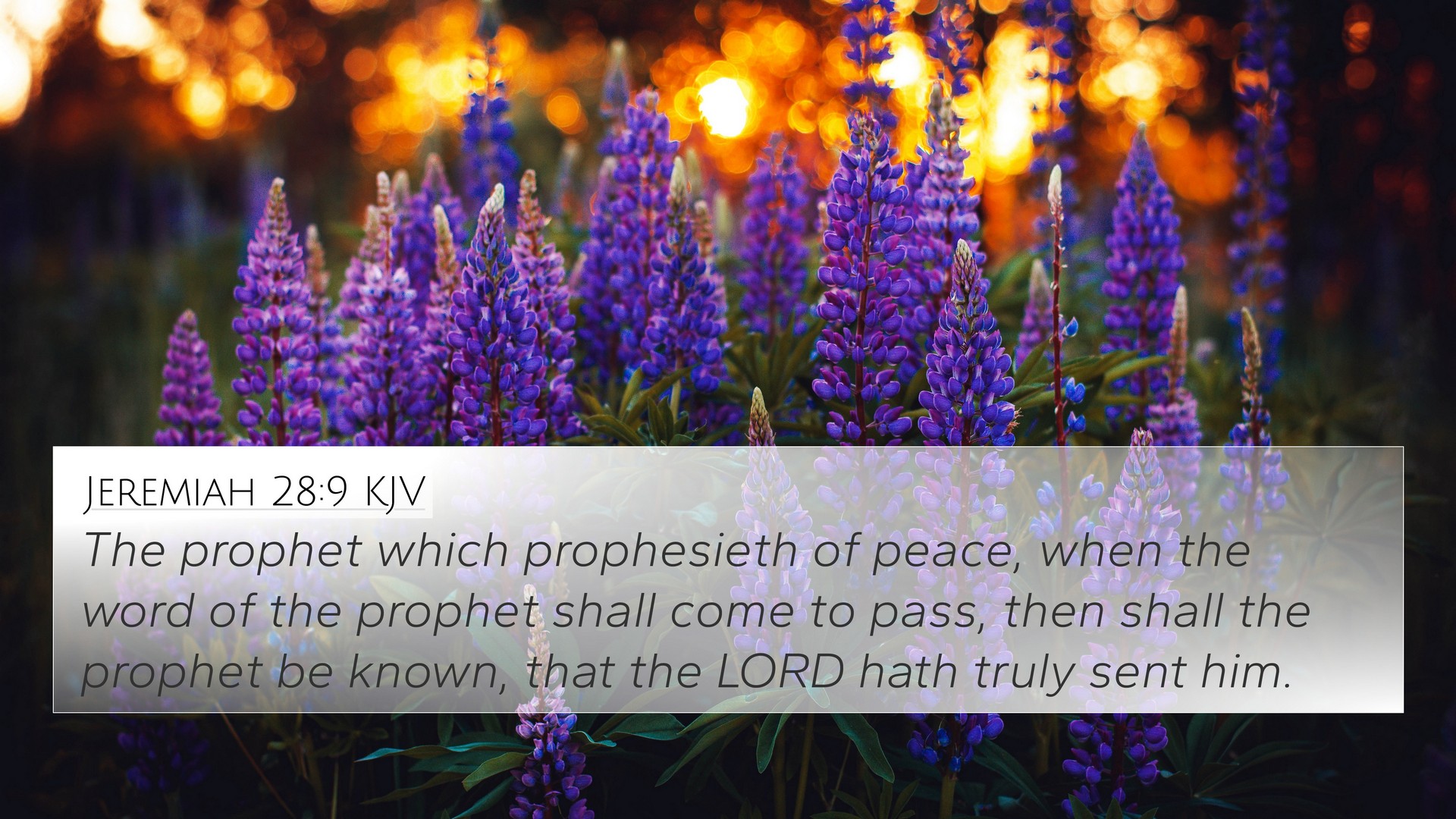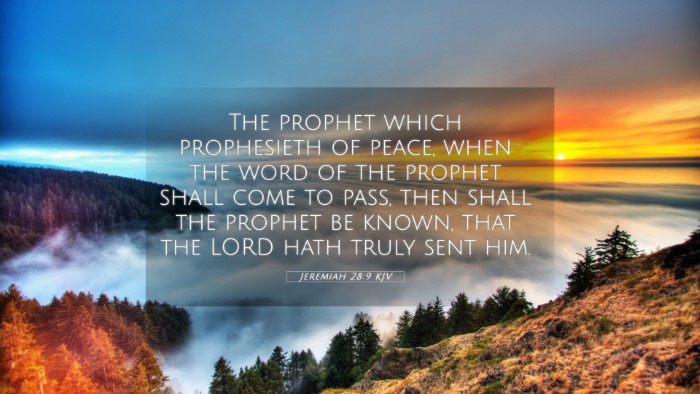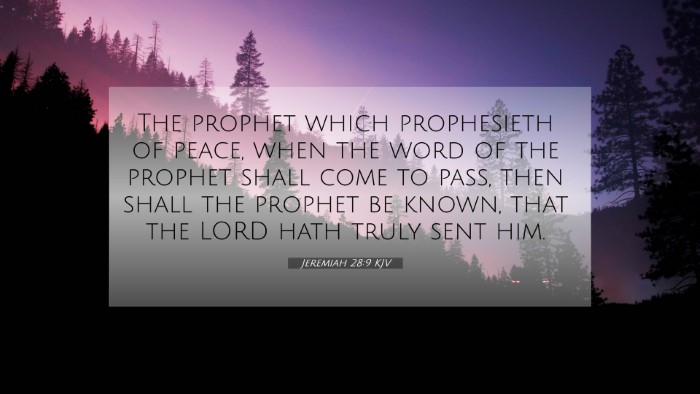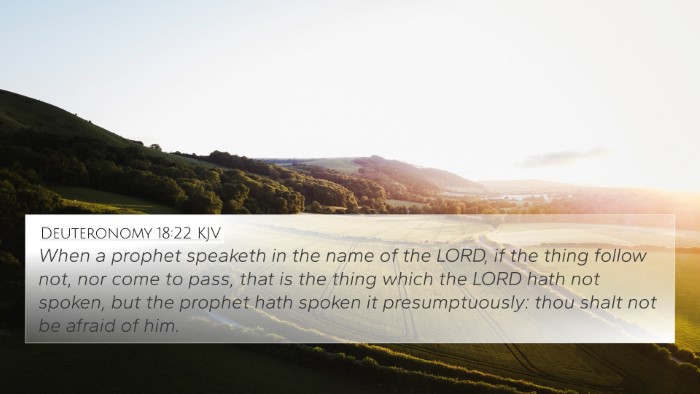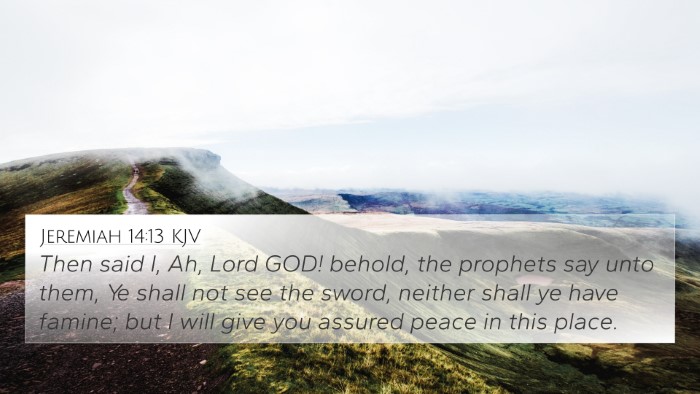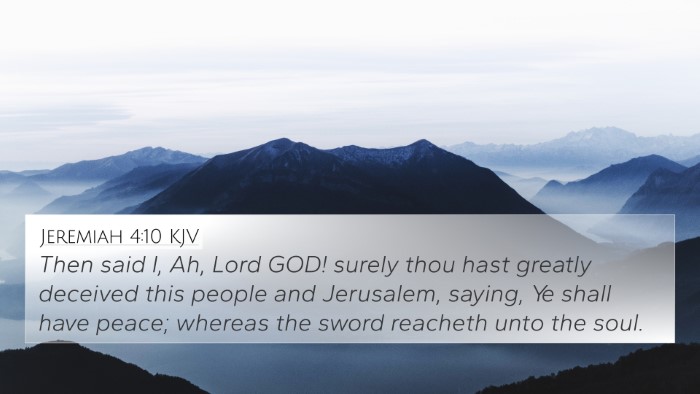Understanding Jeremiah 28:9
Jeremiah 28:9 states: "The prophet which prophesieth of peace, when the word of the prophet shall come to pass, then shall the prophet be known, that the Lord hath truly sent him." This verse captures the essential theme of discernment in prophetic declaration.
Summary of Meaning
This verse is significant as it emphasizes the test of a true prophet of God. Matthew Henry interprets this verse as a reminder that the fulfillment of a prophecy denotes the authenticity of the prophet's calling. When a prophet speaks words of peace, it is God's action that confirms the veracity of those words through their fulfillment.
Albert Barnes adds that the purpose behind such prophecies is to assure the people of God’s presence and plans. The key condition is the realization of the prophecy; thus, true acknowledgment comes when the prophecy aligns with what God has ordained.
Adam Clarke further notes that true prophets are known by their predictions coming to pass. This verse serves as a reassurance for the faithfulness of God’s guidance through His chosen messengers. If a prophet's words manifest peace, it affirms their divine commissioning.
Thematic Connections in Scripture
- Deuteronomy 18:21-22: These verses outline the criteria for recognizing a true prophet, emphasizing that if the prophecy does not come to pass, the prophet has spoken presumptuously.
- Isaiah 44:25: This verse underscores God's sovereignty over events and highlights that He can frustrate the signs of false prophets.
- Ezekiel 33:33: Here, the concept that true prophets will be regarded only when their words come to fruition aligns closely with Jeremiah 28:9.
- Matthew 7:15-20: In the New Testament, Jesus warns against false prophets and mentions that their fruits will reveal their true nature, reflecting the core theme in Jeremiah.
- 1 John 4:1: The directive to test the spirits aligns with evaluating prophecy, emphasizing discernment in revelations.
- Acts 21:10-14: The incident involving Agabus illustrates prophetic prediction and its testing, echoing Jeremiah’s message.
- Romans 12:6: This scripture acknowledges the diversity of spiritual gifts, including prophecy, affirming that genuine words will come to pass.
- Revelation 19:10: The testimony of Jesus is the spirit of prophecy, indicating the centrality of Christ in verifying prophetic validity.
- Hebrews 1:1-2: God's revelation through His prophets, ultimately culminating in Christ, connects the former and present prophetic messages.
- John 14:29: Jesus discusses prophecy in such a way that He aims to prepare His disciples for future events, linking their understanding to God's control over history.
Integrating Jeremiah 28:9 in Biblical Studies
Jeremiah 28:9 serves as an essential text for theological discourse on prophecies. For those looking into cross-referencing Biblical texts, tools like a Bible concordance or a cross-reference guide can illustrate how to identify connections between this verse and others, enhancing the understanding of prophetic literature.
Using Cross-References for Deeper Study
To engage in cross-referencing Bible study, practitioners may consider how to find cross-references and delve into inter-Biblical dialogue around prophecy. Utilizing a Bible reference resource can clarify connections and enhance discernment across different biblical narratives.
Conclusion
Overall, Jeremiah 28:9 acts as both a caution and a comfort in the understanding of prophetic utterances. It invites readers to recognize the ultimate authority that God's fulfillment asserts over a prophet's words, ultimately pointing to the need for divine assurance and the authenticating work of the Lord in the lives of His people.
